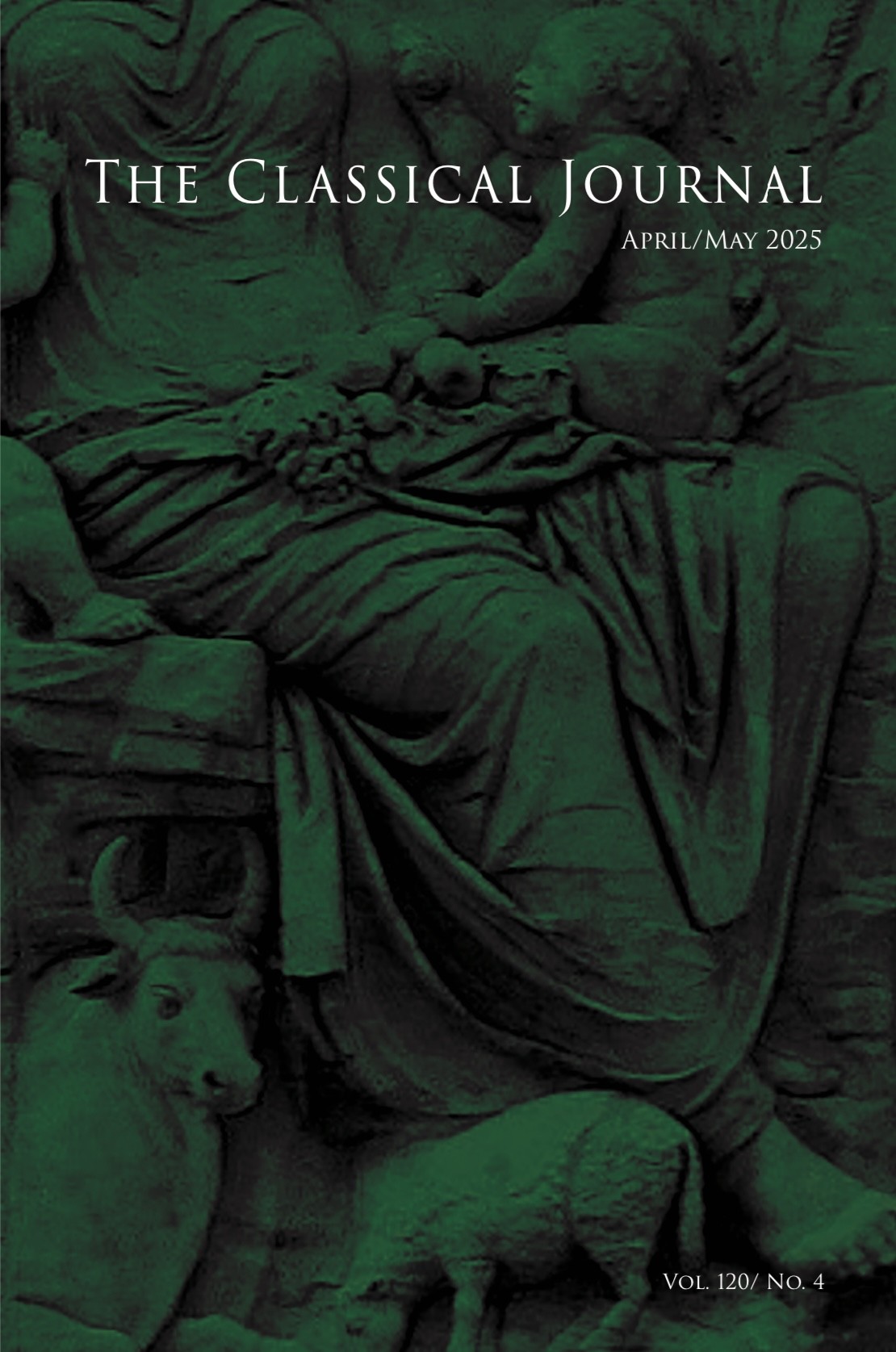The following articles are contained in CJ
110.2
Abstracts of Articles
THE EARLIEST AUGUSTAN GODS OUTSIDE OF ROME
This article examines the earliest uses of the eponymous word Augustus as a divine epithet outside of Rome. It argues that during the reigns of Augustus and Tiberius the epithet was not intentionally vague or generic, as earlier authors have asserted, but served several distinct purposes, but in particular to connect local cults and individuals to imperial events in Rome.
POLITY ACROSS THE POND: DEMOCRACY, REPUBLIC AND EMPIRE IN PHAEDRUS FABLES 1.2
Throughout his allegedly biographical prologues and epilogues, Phaedrus represents his work as developing gradually from submissive translation of Aesop to independent literary creation. While scholars usually take this progression at face value, closer scrutiny reveals that Phaedrus modifies Aesopic material to serve his own ends long before he overtly asserts his poetic autonomy. In poem 1.2, Phaedrus adapts a fable about Athenian democracy for uniquely Roman audiences, engaging allusively with Cicero’s De Re Publica. At the same time, he adjusts Cicero’s ideas about political change in the Republic to fit realities of life in the Empire. Poem 1.2 also functions programmatically by establishing Cynic-Stoic resignation as a major theme for the rest of the fable collection.
THE RISE OF SABINUS: SEXUAL SATIRE IN CATALEPTON 10
This article demonstrates that Catalepton 10, the famous parody of Catullus 4, has a pervasive sexual subtext. Quinctio the muleteer not only transforms into the politician Sabinus; he also undergoes a sexual transformation from an active lover of women to a passive lover of men. The poem’s subtext employs equestrian sexual metaphors and also plays upon the erotic associations of muleteers, mules, and upstart/parvenu figures in Roman culture.
PLUTARCH’S YEARNING AFTER DIVINITY: THE INTRODUCTION TO ON ISIS AND OSIRIS
This article provides a detailed interpretation of the programmatic introduction to Plutarch’s treatise On Isis and Osiris. The analysis of its three sections reveals Plutarch’s systematic emphasis on a theoretical Platonic approach and throws light on his zetetic ideals. It also clarifies Plutarch’s ζήτημα methodology and his broad understanding of philosophy.


